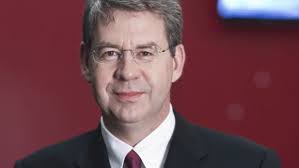By Paul Nicholson
December 23 – What came first, greed-driven sports marketing agencies or avaricious sports administrators who jumped at the opportunity to siphon off cash for rights? The answer is probably that the two were always intertwined, but what football needs to avoid at all costs is another ISL or Traffic Sports situation.
That requires a commercial model that is robust in its anti-corruption measures but is still able to take advantage of the commercial marketplace to fund its competitions.
One organisation that reckons it has created this model and proved it works is TEAM Marketing, UEFA’s agency that sells broadcast and sponsorship rights for the confederation’s club competitions; principally the Champions League and Europa League.
Martin Wagner, Delegate of Board, Team Group, is unswervingly confident when he says “we have created a model that is safe from corruption”.
TEAM Marketing generates more than €2 billion of revenue from the Champions League and €350 million from the Europa League annually. This splits €1.9 million from TV rights and €475 million from sponsorship.
UEFA is TEAM’s sole customer and while UEFA does not have an ownership position in the agency, it has a seat at the board and visibility of every contract and business decision. “This arrangement is intended to exclude any possibility of conflicts of interest in the sports market,” says Wagner.
He explains the model as having four basic pillars.
The first is that the governing body makes no rights sales itself. “The governing body can’t sell. The agency must act as the intermediary between the governing body and the commercial partner. The agency makes deal recommendations and the governing body can say no to deals,” says Wagner.
The second is that the governing body has strong influence within the agency on its governing board via its board representative who not only has oversight of the control of rights but also over appointing management of the agency.
The third is that the agency must be what Wagner calls “single focus market driven…the agency must have strong operational freedom over how we work”. Wagner says that the agency must behave like any other marketing agency which means that it will have areas – for example pay and bonus structures – that will not match the structures of the governing body. To be competitive and to get the best people the governing body must understand and accept this.
The fourth pillar is what Wagner calls “third party ownership” of the agency. “This is very important as it means the agency can act in the market free from political issues, like those we are seeing with FIFA. But, what is also very important is that it provides double checks and balances over the agency business.”
It is this double checking that provides the strongest anti-corruption measure. In TEAM’s case UEFA controls the deals but at the same time TEAM’s holding company Highlight Communications also has its own governance requirements of the business. The scrutiny by both sides is intense.
TEAM sells rights on a three-year cycle and it is a long process.
“With the sale of TV rights there is a 12- to 18-month pre-sale phase in which the individual markets are visited and market-specific data is procured. A 3- to 5-week tendering phase is launched, during which the media companies can submit their tenders for purchasing the broadcasting rights. This is followed by the final phase in which the tenders are checked and contracts are signed with the selected suppliers,” says Wagner.
“The laboriousness of this process cannot be understated: in the course of marketing the TV rights, 1,500 presentations are developed, 3,000 tenders are checked, 180 territories are covered and 250 contracts are signed with 150 media companies.”
For the agency there is can be the danger that in a process like this it can be selling rights in advance but working in a vacuum when it comes to cashflow required to run the business – especially if its business is dependent on one source. But operating on a three-year cycle, once the initial cycle is worked through, Wagner says makes it “not such a burden to have one client”.
“The sale of sponsorship rights follows a less standardised path,” says Wagner. “These rights are divided between different business categories… and are assigned exclusively. The sales material is tailored precisely to the potential customers. Ultimately, the sale of sponsorship rights must be coordinated with the sale of TV rights to avoid the possibility of any conflict when evaluating those rights and to ensure that every party gets what they are paying for.”
UEFA’s Champions League commercial success has been the breakout sports business story of the past 10 years. The simple idea of putting the highest quality international club football with the biggest clubs and stars on mid-week primetime television and structuring a competition with the sporting integrity that seamlessly supports the commercial opportunity has been a massive win for all sides. And it has been achieved without endless corruption scandals.
TEAM’s revenue splits 80% from TV sales and 20% from sponsorship. This differs from FIFA which has a 60-40 split. But FIFA’s sales are now made by an in-house marketing team. And this is where doors open to many of the issues and dangers that lead to “corruption of the enterprise”, to use a favourite US phrase increasingly heard in football circles.
Wagner says that he believes the “marketing organisation is way too close to FIFA”. What has happened at FIFA has reverberated around the commercial markets for football worldwide. “Endless negative headlines have severely damaged the reputation of football as an industry. The task now is to regain the confidence of the sport’s commercial partners and the fans,” says Wagner.
The TEAM model for UEFA is certainly a working model in this regard.
Contact the writer of this story at moc.l1734957308labto1734957308ofdlr1734957308owedi1734957308sni@n1734957308osloh1734957308cin.l1734957308uap1734957308
Martin Wagner, a lawyer and media entrepreneur, and is a former chairman of Insideworldfootball.

